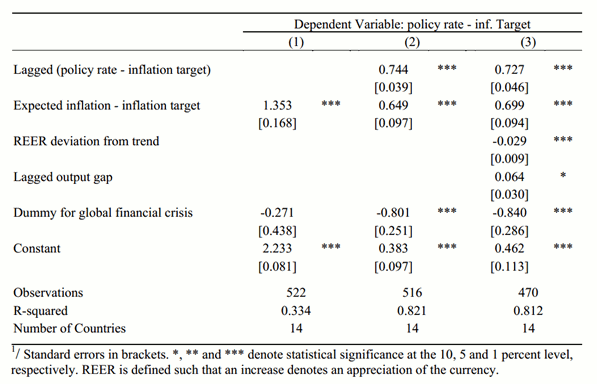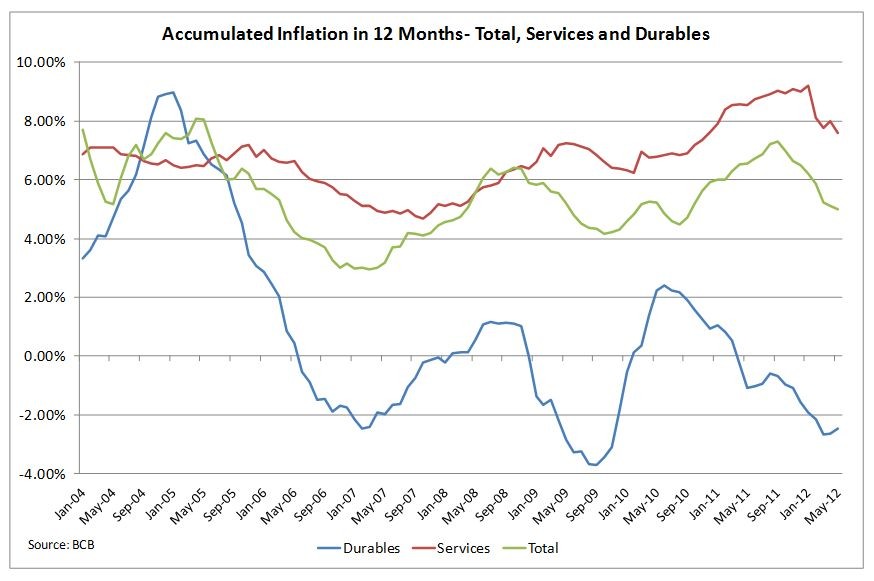Can Inflation Targeting Work in Emerging Market Countries
Post on: 16 Март, 2015 No Comment

Page 1
NBER WORKING PAPER SERIES
CAN INFLATION TARGETING WORK
IN EMERGING MARKET COUNTRIES?
Frederic S. Mishkin
Working Paper 10646
www.nber.org/papers/w10646
NATIONAL BUREAU OF ECONOMIC RESEARCH
1050 Massachusetts Avenue
Cambridge, MA 02138
July 2004
For presentation in a conference in honor of Guillermo Calvo, held on April 15 and 16, 2004 at the
International Monetary Fund in Washington, DC. The views expressed in this paper are exclusively those of
the author and not those of Columbia University or the National Bureau of Economic Research.The views
expressed herein are those of the author(s) and not necessarily those of the National Bureau of Economic
Research.
©2004 by Frederic S. Mishkin. All rights reserved. Short sections of text, not to exceed two paragraphs, may
be quoted without explicit permission provided that full credit, including © notice, is given to the source.
Page 2
Can Inflation Targeting Work in Emerging Market Countries?
Frederic S. Mishkin
NBER Working Paper No. 10646
July 2004
JEL No. E5, F3
ABSTRACT
This paper explores issues in emerging market countries to make inflation targeting work for them.
It starts by outlining why emerging market economies are so different from advanced economies and
then discuss why developing strong fiscal, financial and monetary institutions is so critical to the
success of inflation targeting in emerging market countries. Then it discusses two emerging market
countries which illustrate what it takes to make inflation targeting work well, Chile and Brazil. It
then addresses a particularly complicated issue for central banks in emerging market countries who
engage in inflation targeting: how they deal with exchange rate fluctuations. The next topic focuses
on the IMFs role in promoting the success of inflation targeting in emerging market countries. The
conclusion from this analysis is that inflation targeting is more complicated in emerging market
countries and is thus not a panacea. However, inflation targeting done right can be a powerful tool
to help promote macroeconomic stability in these countries.
Frederic S. Mishkin
Graduate School of Business
Uris Hall 619
Columbia University
New York, NY 10027
fsm3@columbia.edu
Page 3
1 Although I suspect that Guillermo may be more favorable now, but you will have to ask
him.
-1-
An important theme in Guillermo Calvo’s work has been that emerging market
economies are very different from advanced economies, and this has important implications
that need to be factored in when designing macroeconomic policies. For example, Guillermo
(e.g. see Calvo, 1999a, Calvo, 2001 and Calvo and Mendoza, 2000) has been quite skeptical of
inflation targeting as a monetary policy strategy for emerging market countries.1 He worried that
allowing too much discretion to policymakers in the weak institutional environment of emerging
market countries might lead to poor macroeconomic outcomes. I am known to be an advocate of
inflation targeting, but I think that Guillermo’s concerns about inflation targeting’s efficacy in
emerging market countries need to be taken seriously.
Before starting it is important to make clear what an inflation targeting regime is all
about. It comprises five elements: 1) the public announcement of medium-term numerical
targets for inflation; 2) an institutional commitment to price stability as the primary goal of
monetary policy, to which other goals are subordinated; 3) an information inclusive strategy in
which many variables, and not just monetary aggregates or the exchange rate, are used for
deciding the setting of policy instruments; 4) increased transparency of the monetary policy
strategy through communication with the public and the markets about the plans, objectives,
and decisions of the monetary authorities; and 5) increased accountability of the central bank
Page 4
-2-
many of them routinely reported numerical inflation targets or objectives as part of the
governments economic plan for the coming year, and yet their monetary policy strategy
should not be characterized as inflation targeting, which requires the other four elements for it

to be sustainable over the medium term.
In this paper, I explore what additional issues need to be addressed in emerging market
countries to make inflation targeting work for them. I start by outlining why emerging market
economies are so different from advanced economies and then discuss why developing strong
fiscal, financial and monetary institutions is so critical to the success of inflation targeting in
emerging market countries. Then I discuss two emerging market countries which illustrate what
it takes to make inflation targeting work well, Chile and Brazil. I then address a particularly
complicated issue for central banks in emerging market countries who engage in inflation
targeting: how they deal with exchange rate fluctuations. The next topic focuses on the IMF’s
role in promoting the success of inflation targeting in emerging market countries. The
conclusion from this analysis is that inflation targeting is more complicated in emerging market
countries and is thus not a panacea. However, inflation targeting done right can be a powerful
tool to help promote macroeconomic stability in these countries.
WHY EMERGING MARKET ECONOMIES DIFFER FROM ADVANCED
differences for emerging market countries that must be taken into account to derive sound theory
and policy advice. These are:
• Weak fiscal institutions.
• Weak financial institutions including government prudential regulation and
supervision.
• Low credibility of monetary institutions.
• Currency substitution and liability dollarization.
• Vulnerability to sudden stops (of capital inflows).
Advanced countries are not immune to problems with their fiscal, financial and monetary
institutions, the first three items in the list above, but there is a major difference in the degree of
the problem in emerging market countries. Weak fiscal, financial and monetary institutions
make emerging market countries very vulnerable to high inflation and currency crises, so that the
real value of money cannot be taken for granted. As a result, emerging market countries face the
threat that domestic residents may switch to a foreign currency leading to currency substitution
(Calvo and Végh, 1996). Currency substitution is likely to be due not only to past inflationary
experience but also to the sheer fact that a currency likes the U.S. dollar is a key unit of account
for international transactions. This phenomenon has induced the monetary authority to allow
banks to offer foreign exchange deposits. In this fashion, a sudden switch away from domestic
and into foreign money need not result in a bank run, since in the presence of foreign exchange
deposits, such a portfolio shift could be implemented by simply changing the denomination of














